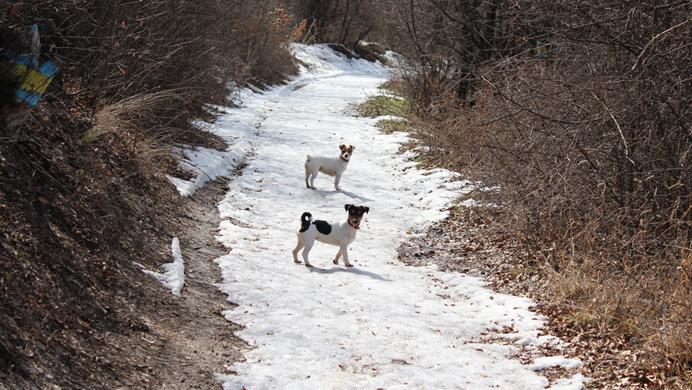The canine flu that recently made a comeback in Chicago, sickening at least 150 dogs at several shelters across the city, could make its way back to Iowa, says one clinician and veterinary expert.
Bryce Kibbel, a clinician at Iowa State Universities’ College of Veterinary Medicine, said he expects the dog flu to be around the U.S. for quite some time, the extent to which has yet to be determined.
“So there may be other areas the dog flu is [spread to], we just don’t know yet; either because those dogs haven’t been tested for it and we haven’t verified where it was. It would shock me if [dog flu] doesn’t eventually get here,” he said.
In April 2015, more than 1,000 dogs were affected by dog flu in Chicago and other parts of the Midwest. At least one dog in Sioux City, Iowa, was diagnosed with the canine flu last year, AP reports.
“If [dog flu] does stay, I suspect more outbreaks will occur,” Kibbel said.
Kibbel said he suspects if the outbreaks keep occurring, many dogs will be vaccinated, and will hopefully be protected.
Exposed dogs may develop some immunity post infection, he said, which all works to reduce the number of naive or susceptible animals.
“Since this is a relatively new virus for dogs in the US, it is uncertain how long that may take,” he said, referencing to the duration of recovery.
Kibbel said experts aren’t sure when the flu will potentially arrive to Iowa because the flu does not have a seasonality, and also because behavior of the current dog flu is different to the previous dog viruses.
“This version of the dog flu we are dealing with now is different from other versions we’ve had in the past,” he said. “Couple of reasons is the dog seems to shed the virus before they get sick, so for people who are travelling with their pets, they might not even know their pets are carrying the dog flu.”
Randy Wheeler, the executive director of the Iowa Veterinary Medical Association, said dog flu could be spread via close and direct contact between dogs, such as drinking out of the same water bowl.
At this point, he also said, there is no evidence showing that humans can be affected by dog flu.
“To date there has been no evidence of that [dog flu affecting humans], but always flu viruses are constantly changing, and I’ll use the example of human medicine, they are all the time changing that vaccine because the virus is unique and it has the ability to take and change, and come up with a different strain.”
He said initial symptoms of canine influenza virus include, coughing, a runny nose, fever, and depending on the severity, lack of appetite.
Liz Ford, the animal services supervisor at the Iowa City Animal Care & Adoption Center, said the center has not seen any dog flu at this time.
“I would seek advice from a veterinarian if an animal in my care becomes sick and we would manage it here in our isolation area or place it in a foster home if needed,” she said.
She said the influenza would certainly impact the center because sick animals require much more attention and medical care, and the center has limited resources.
“Often, donations help us pay for medical bills of this nature,” she said.
Kibbel also noted that the current virus is more related to the avian influenza, or usually known as bird flu, which originates from South East Asia.
“That’s the other thing, we don’t know really know how it got here,” he said. “There has been reported cases that it has been up to 21 states now, so the major of it, is that we are going to see more if it.”







